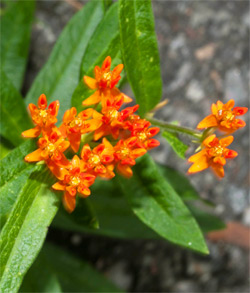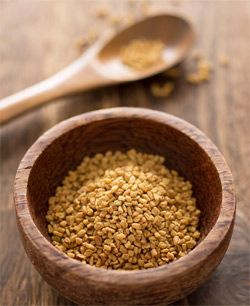|
|
Pneumonia: Searching Herbal Remedies

Pneumonia or inflammation of the
lungs
is mostly caused by bacterial, viral, fungal or parasitical infection and
sometimes by inhalation of toxic gases, chemicals and unhealthy eating habits.
Commonly found in children below 5 yrs of age and seniors.
Symptoms of Pneumonia
-
Cough (with some pneumonias you may cough up greenish or
yellow mucus, or even bloody mucus)
-
Fever, which may be mild or high
-
Shaking chills
-
Shortness of breath, which may only occur when you climb
stairs
Additional symptoms include:
-
Sharp or stabbing chest pain that gets worse when you
breathe deeply or cough
-
Headache
-
-
-
Confusion, especially in older people
Symptoms also can vary, depending on whether your
pneumonia is bacterial or viral.
-
In bacterial pneumonia, your temperature may rise as high as
105 degrees F. This pneumonia causes profuse sweating, and
rapidly increased breathing and pulse rate. Lips and nailbeds
may have a bluish color due to lack of oxygen in the blood. A
patient's mental state may be confused or delirious.
-
The initial symptoms of viral pneumonia are the same as
influenza symptoms: fever, a dry cough,
headache, muscle pain, and weakness. Within 12 to 36 hours,
there is increasing breathlessness; the cough becomes worse and
produces a small amount of mucus. There is a high fever and
there may be blueness of the lips.
source:
http://www.lung.org/
|
Herbal Options for Pneumonia
The disease can prove fatal if timely treatment is not given to the patient.
Natural herbal remedies for pneumonia can only provide relief from the symptoms
of pneumonia by strengthening immunity and facilitating faster recovery. Proper
treatment provided by physician is a must for treating pneumonia.
-
 Pleurisy Root (Asclepias tuberosa): It helps reduce inflammation
of the pleural membranes in the lungs, enhances secretion of healthful lung
fluids, and is really a lymphatic system stimulant. Pleurisy root has been
utilized to take care of many different illnesses, including pleurisy,
pneumonia,,
bronchitis, influenza and chronic coughing. Note that excessive intake
of pleurisy root herb can lead to nausea, vomiting, stomach pain and
irregular heart beat. People with heart problems should not take pleurisy
root. Pregnant women and breast feeding mothers should also avoid having
this herb. Pleurisy Root (Asclepias tuberosa): It helps reduce inflammation
of the pleural membranes in the lungs, enhances secretion of healthful lung
fluids, and is really a lymphatic system stimulant. Pleurisy root has been
utilized to take care of many different illnesses, including pleurisy,
pneumonia,,
bronchitis, influenza and chronic coughing. Note that excessive intake
of pleurisy root herb can lead to nausea, vomiting, stomach pain and
irregular heart beat. People with heart problems should not take pleurisy
root. Pregnant women and breast feeding mothers should also avoid having
this herb.
-
Sea buckthorn (Hippophae rhamnoides): The plant's orange fruit
and the oil from its pulp and seeds have been used traditionally for lung
conditions, including coughing and phlegm reduction. Human study supports
the use of sea buckthorn in pneumonia, although more clinical research is
necessary. According to the Chinese Pharmacopeia, internal use of sea
buckthorn is recommended as a pain reliever, cough suppressant, expectorant,
digestive tonic, and blood flow promoter. Avoid if allergic or
hypersensitive to sea buckthorn, its constituents, or members of the
Elaeagnaceae family. Use cautiously in patients with cancer, high blood
pressure, or bleeding disorders. Avoid doses higher than those found in
foods if pregnant or breastfeeding.
-
Holy Basil or Tulsi leaves: The essential oil extracted from the
Tulsi leaves is very powerful in providing remedy for pneumonia. This oil is
very effective when it is in a pure form without any adulteration. Apply
this holy basil oil on the chest of the affected person to get good relief.
Yet another natural treatment is eating the raw Tulsi leaves or take 5-6
Tulsi leaves and extract the juice from it. Add little pepper powder to it.
Take this herbal tonic once in six hours. If you continue these two
treatments together, you will experience the real magic. Basil leaves help
produce enough heat in the body and makes the person to sweat, with which
the cold inside your body gets evaporated.
-
 Fenugreek Seeds: The bitter herb has excellent mucolytic
properties. Mucolytic agents can dissolve thick mucus in order to help
relieve respiratory difficulties. It also promotes perspiration which helps
in reducing fever and
detoxifyingg body. Tea prepared by boiling a tea spoon of fenugreek
seeds in 500 ml of water is beneficial for treatment of pneumonia. Fenugreek Seeds: The bitter herb has excellent mucolytic
properties. Mucolytic agents can dissolve thick mucus in order to help
relieve respiratory difficulties. It also promotes perspiration which helps
in reducing fever and
detoxifyingg body. Tea prepared by boiling a tea spoon of fenugreek
seeds in 500 ml of water is beneficial for treatment of pneumonia.
-
Turpentine Oil: Massage chest and ribcage with turpentine oil and
keep the chest covered with blanket thereafter for a few hours to get relief
from chest pain and discomfort. Turpentine Oil is recommended home remedy
for pneumonia.
Other home remedies found effective in cure of pneumonia include ginger,
garlic turmeric, pine, cinnamon, cloves oil, peppermint, lavender & rosemary.
Dated 25 November 2014
Related Links
|
|
|
|
|









